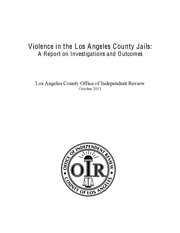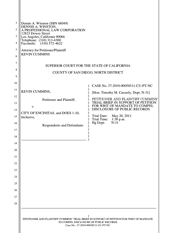California public records
A guide to your rights as a citizen
How to get documents quicker and cheaper
Tips to help government workers expedite the retrieval process, limit printing costs, and ensure that exemptions and deadlines were properly followed.
It can sometimes be difficult — and costly — to obtain government records, even those that are clearly required to be available for the public. Here are some troubleshooting tips.
How can I receive public records more quickly?
Public Records Act requests can be time-consuming, especially if you are seeking a substantial number of documents. The city or agency must retrieve records, evaluate whether they can be disclosed, and then print them.
The time that process takes often depends on the size and nature of the request. Generally, the more specific your request, the quicker you will receive a response. But experts say there are several other ways to speed up the process.
It can be helpful to discuss your request with city staff, said Peter Scheer, executive director of the California First Amendment Coalition. If you provide a written request, there is a legal record of it. And if your request is in writing, state law requires a public agency to respond to your request in writing, he said.
Terry Francke, general counsel at Californians Aware, said including the phrase “please disclose the records as they are located,” in a written request can help prevent delays.
“That should start getting you some production earlier than you might if you waited for the whole package,” Francke said.
How can I avoid printing costs?
Many public document files are expensive. Contracts and other agreements can be hundreds of pages, and agencies often charge 10 cents or more per page. In some cities the fee is as high as 25 cents per page.
In your request, you can ask for an estimate of all printing costs. You can also ask to review the records before they are printed. Both Francke and Scheer said that inspecting documents first is the best way to avoid excessive printing fees.
If printing fees seem especially high, you can request the “cost study” used to justify the fees, Francke said. Public agencies are obligated to charge only for printing costs — not required labor, he said.
“Generally speaking, they are not allowed to charge the cost of search and retrieval, editing and redacting — it’s the Kinko’s cost that you are paying,” Francke said.
How can I research exemptions cited by cities?
Cities must cite California government code when denying a public records request. It’s important to research these citations to make sure they are correct, Francke said.
For example, in some cases an agency will withhold an entire document even though only a portion of it is exempt from disclosure. Make sure to mention in your initial correspondence that you want the records even if portions of them must be redacted.
Francke said public employees sometimes lack a complete understanding of the law.
“There is no bad consequence to a government employee who misquotes the law to you,” he said. “They have the bureaucratic sense that if they give away too much — that’s when they might get in trouble. So they err on the side of denial. They don’t always err, but when they do it’s on the side of denial.”
Here are a few resources to help you better understand the California Public Records Act:
- League of California Cities
- California First Amendment Coalition
- First Amendment Project
- Californians Aware
- California attorney general summary
Both the League of California Cities and Californians Aware offer free advice on their websites to citizens trying to obtain public records. The coalition also has a free iPhone app.
Should I consult an attorney if I’m not receiving public records?
Experts said requestors should consider any litigation carefully because of the cost of attorneys fees.
“You don’t want to file a lawsuit prematurely, but on the other hand, an agency can’t be rewarded for simply paying no attention to deadlines,” Scheer said.
If you disagree with a city’s withholding of records, Scheer said it’s helpful to follow up on your initial request with a “factual argument” on why you believe the records should be public. This gives the agency more time to respond and creates a written record of your effort to obtain the records.
Francke said “rushing to the courthouse” can be risky because a judge may determine that the city was engaged in a good-faith effort to locate the records, and that they hadn’t been given enough time to respond to the request.
Share your documents
If you have a public record you would like to share with The Times, attach it to an email to documents@latimes.com or mail it to 202 W. 1st St. Los Angeles, CA 90012, attention City Desk.
Reader-reported documents
About documents.latimes.com
The Times has published thousands of pages of public documents, ranging from Ruben Salazar’s killing to the Bell scandal. Track the Times’ latest at documents.latimes.com.

